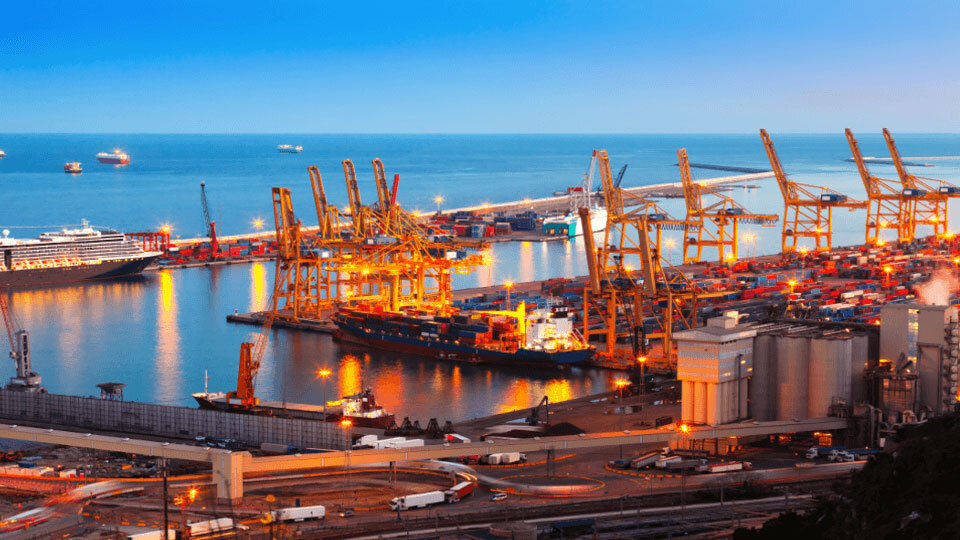Software sheds light on port tariffs


Greece-based tech start-up HarborLab launched its first product to the shipping industry two days before the Covid-19 pandemic began to shut down Europe in March 2020. But this did not deter its founder and CEO, Antonis Malaxianakis, who pushed ahead with his plans to see 20 vessels enrolled onto his disbursements accounting platform by December 2020. The company significantly exceeded this target and in June this year welcomed its 300th vessel. During the same period, it went from being a company of two to 25 employees.
Malaxianakis is well-placed to drive back-office digitalization. Not only does he have a bachelor’s degree in statistics and a master’s degree in shipping, but he cut his teeth in ship management company Thenamaris’ disbursements department after being recruited onto its graduate training program.
He spent four and a half years with the company, and then two with Greece-based tanker manager Product Shipping & Trading, during which time Malaxianakis started developing the dashboard for what would become Harbor Lab’s flagship online Disbursements Accounting (DA) Tool.
Malaxianakis has first-hand experience, first as a trainee, then disbursements operator, and finally disbursements supervisor, of the processes that drive disbursements accounting, and realized that a significant part of the job could be streamlined through digitalization.
“The way most disbursement teams currently work is administrative-heavy, involves complex communications chains, and has significant room for error,” he says. Disbursements’ operators research online to find tariffs and identify potential ship agents, arrangements are often agreed verbally, and then followed up via email. Paper is moved between departments for signatures, and significant amounts of money change hands between the shipping company and agent, he explains. Further, these activities often take place across different time zones.
“There is a lack of transparency in the disbursements accounting process that causes so much uncertainty and administration that I decided to develop software to streamline the processes. The level of information our tools bring to our customers also enables them to be one step ahead of their competitors as they can make faster decisions and book cargoes more quickly.”
Recognizing the need for a software-driven framework, he put his mind to creating a platform that serves the ship operator in-house and is driven by accurate and validated port tariff data. The result of his efforts is HarborLab’s DA Tool, a cloud-based software through which ship agents can be booked, fees compared, documents shared, proformas checked, and deals signed. The system shows the user at a glance whether tariffs and prices shared on the system can be trusted – green indicates the data has been checked and validated, and red indicates that the agent is overcharging or the tariff cannot be validated.
He says: “I believe in mathematics and algorithms, not manual labor. HarborLab’s solutions take a lot of the ‘leg work’ out of disbursement accounting by automating certain processes and can reduce administration by up to 75%. At the same time, we have put the ship operator back in control. Not only can the ship operator oversee their expenses in-house through their own disbursement accounting teams, but it also gives complete visibility of tariffs and other port fees the operator may otherwise find difficult to clarify”.
HarborLab puts great weight on the quality of its data and its team of 10 data analysts directly contact ports across the globe and obtain and verify official port tariffs. Data and calculation methods are gathered and validated. This data is then digitalized through HarborLab’s online platform that is built on dynamic programming techniques and sophisticated formulae. The tools, which can be accessed via the platform so no software downloads are required, have already attracted 1200 agents and vendors since it went live last year – despite the global pandemic.
The transparency HarborLab’s software brings it in line with the current trend towards digitalization across the industry. Further, regional and international regulators are using technology to create more simplified and transparent procedures, one example being the International Maritime Organization’s updated Facilitation of International Maritime Traffic (FAL Convention) that makes it mandatory for public authorities to establish and maintain a ‘single window’ for electronic exchange of information for the stay, arrival and departure of vessels in ports.
Malaxianakis believes it’s only a matter of time before digitalization makes its mark on back-office functions in such a way that the days of physical paper trails will soon become a distant memory. He is keen to point out that not only will HarborLab’s platform enable disbursements operators to manage more vessels, it will also change the dynamic between the operator and the agent and bring about a level playing field, making it easier for smaller agents to compete alongside bigger companies.
The HarborLab story is still growing. In July the company launched another new online tool that instantly generates estimated port costs for shipping companies. It has plans to further tap into its rich data and develop more tools, which, like its existing products will be accessible via any web-enabled computer or mobile device.
Whatever the future holds Malaxianakis is adamant HarborLab’s operations will always remain in Greece. “We want to buy in our country and to stay Greek. Young people are going to the UK, USA and Germany. We want to stop the Greek talent drain and bring those young people back.”